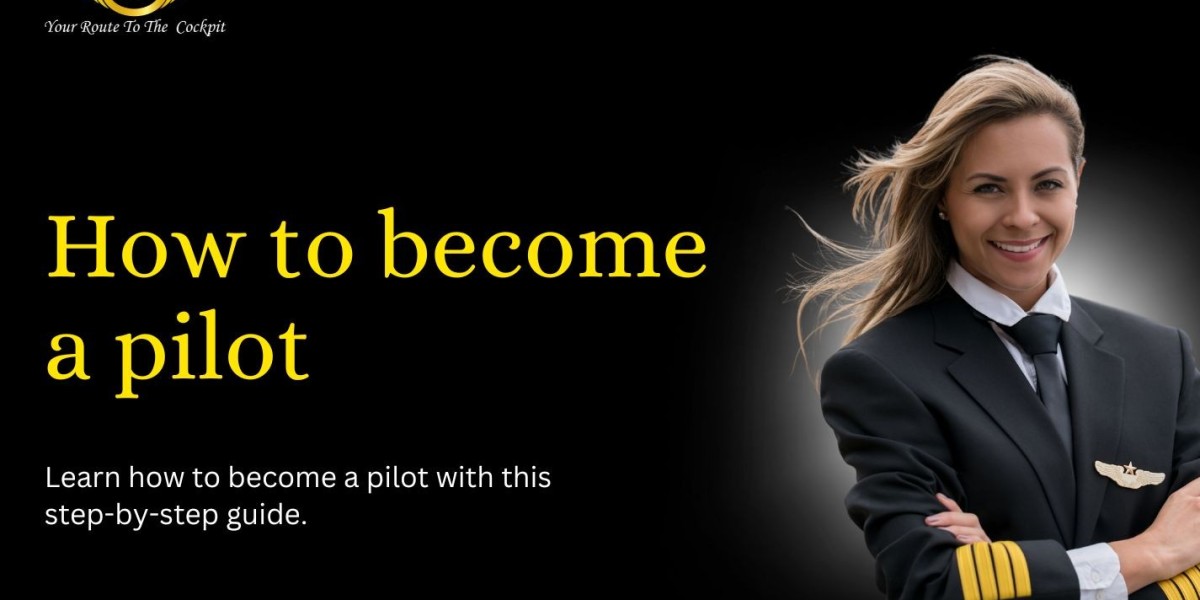How to Become a Corporate Pilot: A Complete Guide
Introduction
Becoming a corporate pilot is a prestigious career choice that offers flexibility, high salaries, and the opportunity to fly private jets for business executives, celebrities, and VIP clients. Unlike airline pilots who operate on fixed schedules, corporate pilots have dynamic flight routes and personalized experiences. If you are wondering how to become pilot in the corporate aviation sector, this guide will walk you through the essential steps, qualifications, training requirements, and career opportunities.
Who is a Corporate Pilot?
A corporate pilot flies private jets, business aircraft, or charter planes for companies, high-net-worth individuals, and organizations. Their primary responsibility is to transport clients safely while offering a premium flying experience. Corporate pilots often work in a more personalized setting compared to airline pilots, making customer service and discretion critical aspects of their role.
Step-by-Step Guide on How to Become a Corporate Pilot
1. Meet the Basic Requirements
Before starting your journey as a corporate pilot, ensure you meet the following basic eligibility criteria:
✔ Age: You must be at least 17 years old to obtain a Private Pilot License (PPL) and 18 years old for a Commercial Pilot License (CPL).
✔ Education: A high school diploma (10+2) with Physics and Mathematics is typically required. Some airlines or corporations may prefer a bachelor's degree in aviation, aeronautical engineering, or related fields.
✔ Medical Fitness: Pass a Class 1 medical examination conducted by a certified aviation medical examiner (AME) to ensure you meet the necessary health and vision standards.
2. Enroll in a Reputable Flight School
Choosing the right flight school is crucial for quality training and career success. Look for a DGCA-approved flight academy in India or FAA-approved schools abroad. The training program should offer:
✔ Private Pilot License (PPL) – The first step towards flying professionally.
✔ Commercial Pilot License (CPL) – A mandatory certification for paid flying jobs.
✔ Instrument Rating (IR) – Essential for flying in poor weather conditions.
✔ Multi-Engine Rating (MER) – Required for flying corporate jets with multiple engines.
3. Obtain Your Private Pilot License (PPL)
The Private Pilot License (PPL) is the foundation of your aviation career. Here’s what you need to do:
✔ Complete at least 40-50 hours of flight training (including solo flying).
✔ Pass the PPL theory and practical exams.
✔ Develop fundamental flying skills before advancing to commercial training.
4. Earn Your Commercial Pilot License (CPL)
To get paid as a pilot, you need a Commercial Pilot License (CPL). The training includes:
✔ Minimum 200 flight hours (varies by country).
✔ Advanced flying techniques like night flying and cross-country navigation.
✔ Exams on meteorology, air regulations, navigation, and technical subjects.
Many aspiring corporate pilots also pursue additional training such as jet transition courses and crew resource management (CRM) training to enhance their employability.
5. Gain Flight Experience & Log More Hours
Most corporate aviation companies prefer pilots with a significant amount of flying hours. To build experience:
✔ Work as a Certified Flight Instructor (CFI) – Teach new students while gaining flight hours.
✔ Join charter services, air taxis, or regional airlines to log more hours.
✔ Consider roles in bush flying, banner towing, or skydiving flights.
Corporate aviation companies typically look for pilots with 500 to 1,500 flight hours, depending on the aircraft type and employer.
6. Obtain Additional Certifications
To stand out in the competitive corporate pilot job market, consider these additional qualifications:
✔ Type Ratings – Corporate jets like Gulfstream, Cessna Citation, or Bombardier require specific type ratings.
✔ Airline Transport Pilot License (ATPL) – Though not always mandatory, an ATPL increases your career prospects.
✔ Soft Skills Training – Communication, customer service, and situational awareness are crucial for corporate pilots.
7. Apply for Corporate Pilot Jobs
Once you have the necessary qualifications, start applying for corporate pilot positions. Here’s how:
✔ Networking – Attend aviation events, join pilot associations, and connect with professionals in corporate aviation.
✔ Direct Applications – Many private jet companies, corporations, and charter services hire pilots directly.
✔ Recruitment Agencies – Specialized aviation recruiters can help you find exclusive job opportunities.
Some of the top corporate aviation companies hiring pilots include:
NetJets
VistaJet
Qatar Executive
Gulfstream Aerospace
Reliance Aviation (India)
8. Continue Training & Career Growth
Even after securing a corporate pilot job, continuous learning is essential.
✔ Attend regular simulator training to maintain proficiency.
✔ Upgrade to larger jet aircraft for better career prospects.
✔ Gain experience to become a chief pilot, aviation manager, or flight operations director.
Corporate pilots often earn between ₹10 lakh to ₹50 lakh per year depending on experience, aircraft type, and employer.
Skills Required to Become a Corporate Pilot
✔ Excellent Flying Skills – Precision and control in handling aircraft.
✔ Decision-Making Ability – Quick thinking in emergencies.
✔ Customer Service Orientation – Providing a premium experience to clients.
✔ Strong Communication – Effective coordination with crew and passengers.
✔ Flexibility & Adaptability – Corporate pilots often have unpredictable schedules.
Cost of Becoming a Corporate Pilot in India
Becoming a corporate pilot requires a significant financial investment. how to become pilot The estimated costs are:
| Training Stage | Estimated Cost (₹) |
|---|---|
| Private Pilot License (PPL) | ₹10 - 15 lakh |
| Commercial Pilot License (CPL) | ₹30 - 40 lakh |
| Type Rating (Jet Aircraft) | ₹20 - 50 lakh |
| Additional Certifications | ₹5 - 10 lakh |
| Total Estimated Cost | ₹65 lakh - ₹1.2 crore |
Financing Options:
Aviation Loans from banks like SBI, HDFC, Axis Bank.
Scholarships from DGCA, IGRUA, or private institutions.
Sponsorships from corporate jet companies.
Why Choose Corporate Aviation Over Airline Pilot Jobs?
✔ Higher Flexibility – No fixed schedules, unlike commercial airlines.
✔ Better Work-Life Balance – More personal interaction and customized flights.
✔ Luxurious Flying Experience – Operate high-end private jets with premium facilities.
✔ Higher Salary Potential – Corporate pilots can earn competitive salaries with perks.
However, corporate pilots must be ready for last-minute flight requests, irregular hours, and VIP client demands.
Final Thoughts: Is Corporate Aviation the Right Career for You?
If you dream of flying private jets and working closely with high-profile clients, a corporate pilot career is an excellent choice. While the path to how to become pilot in corporate aviation is demanding and costly, the rewards are substantial in terms of salary, lifestyle, and job satisfaction.









